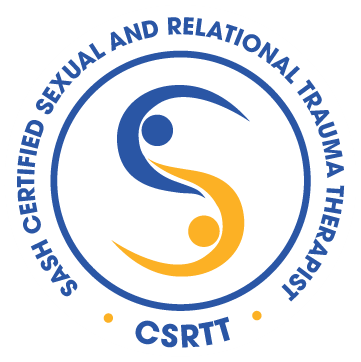Pregnancy and Postpartum Therapy
in Seattle & Bellevue, WA
Starting or growing a family is often imagined as a joyful time, but for many women, it can also bring unexpected emotional challenges. You might feel anxious, overwhelmed, or stuck in sadness during pregnancy or postpartum. Perhaps there’s tension in your relationship, a sense of loneliness, or a struggle to connect with your baby. Sleepless nights, constant worry, or feeling like you’ve lost yourself can be overwhelming and take a toll on your mental health and well-being.
It’s important to know these feelings are not uncommon—and you don’t have to face them alone. Pacific Behavioral Healthcare Therapy provides a supportive space to process your emotions, navigate the stress, and develop tools to cope with the unique challenges of pregnancy and postpartum life. With compassionate care tailored to your needs, therapy can help you find relief, regain confidence, and feel more grounded during this significant time in your life.
PREMIERE SEATTLE PREGNANCY AND POSTPARTUM THERAPY CLINIC
Our Empathic Approach to Pregnancy and Postpartum Therapy
Navigating the emotional challenges of pregnancy and postpartum can feel overwhelming, but compassionate care and therapy can make all the difference. Pacific Behavioral Healthcare takes an empathetic approach to therapy, providing a safe and supportive space for women to explore their feelings without judgment.
Whether you’re facing anxiety, depression, or difficulty coping during this life transition, therapy is tailored to address your unique experiences. The goal is to help you feel understood, develop practical tools for managing stress, and restore balance in your mental and emotional well-being. For couples, therapy can also strengthen relationships, fostering communication and connection during this transformative time.
Online therapy is available in Washington state, contact Pacific Behavioral Healthcare to book an appointment
Perinatal and Postpartum Mental Health Care
Motherhood is a beautiful and transformative experience, filled with moments of pure joy, unconditional love, and an unbreakable bond with your child. However, the journey of becoming a mother can also be filled with immense pressure, exhaustion, and unexpected emotional challenges. The physical and hormonal changes, combined with the demands of caring for a newborn, can leave many women feeling overwhelmed, anxious, and even depressed.
Many moms experience struggles with their mental health during pregnancy and the first year postpartum, yet too many women suffer in silence.
Maternal Mental Health Matters. Pacific Behavioral Healthcare is here to help.

Common Experiences of Perinatal and Postpartum Mental Health Challenges
Postpartum Anxiety
Feeling on edge, overwhelmed by worry? Maybe your mind races a mile a minute, or you struggle to relax. You may have concerns about your baby’s health, the future, or changes in your life can lead to feelings of anxiety. You may even have intrusive thoughts that can feel bizarre and troubling. Perhaps you’re experiencing physical symptoms like dizziness or trouble sleeping. These could be signs of postpartum anxiety.
Postpartum anxiety is common, and it’s treatable. Many new moms experience similar worries and anxieties. We understand the challenges you’re facing, and we want to help.
Postpartum Depression (PPD)
Are you feeling down, overwhelmed, or like the joy has gone out of life? Perhaps you’re having trouble sleeping or eating, or maybe you’re feeling a deep sadness. Losing interest in activities you once enjoyed, becoming easily frustrated, and having difficulty managing your emotions are all common symptoms of postpartum depression, also commonly called PPD. Struggles with attachment or feeling disconnected from your child are also common signs of postpartum depression and make it difficult to bond with your baby. It’s important to know that there is help.
Postpartum Obsessive-Compulsive Disorder
New motherhood can bring a whirlwind of emotions. Sometimes, worries about your baby can become overwhelming and lead to intrusive thoughts and repetitive behaviors. Unwanted thoughts or urges about your baby’s safety can be a symptom of perinatal OCD.
Perhaps these thoughts make you feel scared, even though they don’t reflect your true feelings. You might also feel compelled to repeat certain actions to manage your anxiety. It’s important to know that these experiences don’t mean you’re a bad mom! Many parents experience these challenges known as postpartum OCD. We can help you manage these intrusive thoughts and behaviors and find peace of mind.
Birth Trauma and Postpartum Posttraumatic Stress Disorder
Birth is a powerful and unpredictable experience. While many women have positive deliveries, others encounter unexpected events that can be traumatic. Certain situations, like unplanned C-sections, emergency interventions during delivery, or feeling a lack of support during the process, can contribute to feelings of powerlessness and bring about symptoms of PTSD. Even complications during labor, the need for NICU care for your baby, or simply feeling out of control during the birthing process can leave a painful impact.
If your childbirth experience left you feeling scared, overwhelmed, or disconnected, you may be suffering from postpartum Post-Traumatic Stress Disorder (PTSD).
Postpartum PTSD can manifest through a range of emotional and physical symptoms. You might experience intrusive thoughts and memories that replay the birth experience vividly. Flashbacks or nightmares of the delivery can disrupt your sleep and leave you feeling restless. The trauma may also lead you to avoid anything related to childbirth, like doctors, or specific memories associated with the event. This can make it difficult to seek help or even talk about what happened. Anxiety, panic attacks, and difficulty sleeping can become common occurrences. These symptoms can create a sense of detachment and emotional numbness, making it hard to connect with your new baby and enjoy motherhood.
Birth trauma and Postpartum PTSD can be incredibly isolating, but you don’t have to navigate this alone. We specialize in helping women process the traumatic experience in a safe and supportive environment, regain control and a sense of control and safety, and reclaim your joy in motherhood.
How can Therapy for Pregnancy and Postpartum Help?
Seeking Support Makes You a Strong Mom. Perinatal mental health challenges are not a reflection of your parenting skills or your love for your child. They are simply a sign that you need support. Don’t wait to seek help! Early intervention with therapy can help you start feeling better faster. Treatment can provide you with the tools you need to manage those challenging emotions, fostering a healthier and more nurturing environment for yourself and your family. Seeking therapy isn’t a sign of weakness – it’s a sign of strength and a commitment to your well-being as a mother.
Pacific Behavioral Healthcare understands the unique challenges faced by moms experiencing perinatal mental health issues. Our team provides a safe and supportive haven where you can explore your emotions openly and without judgment. Through therapy, you can develop effective coping mechanisms for managing anxiety, stress, and depression.
We’ll also provide you with tools for strengthening communication with your partner and family and explore strategies for building a strong and healthy bond with your baby. Additionally, we’ll guide you in developing self-care practices to nurture both your physical and emotional well-being, helping you navigate this important time in your life.
Motherhood doesn’t have to be a lonely journey. With support, you can find joy, rediscover yourself, and create a fulfilling experience for both you and your baby.
Ready to Find Real Care?
Discover the Pacific Behavioral Healthcare difference with pregnancy and fertility therapy in Seattle and Bellevue, WA. Together we will help you find peace and health through your perinatal, postpartum, or fertility journey.









